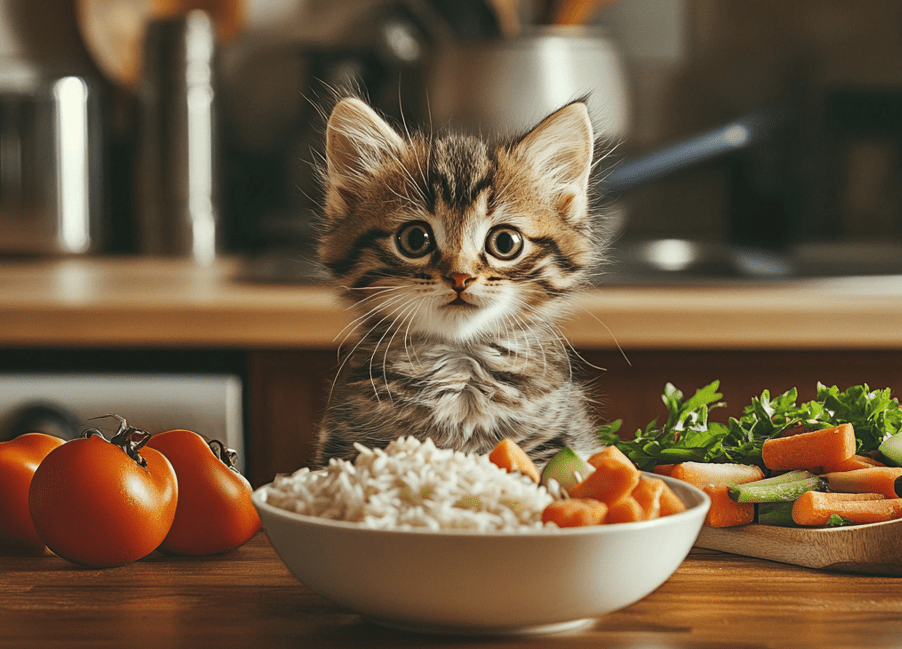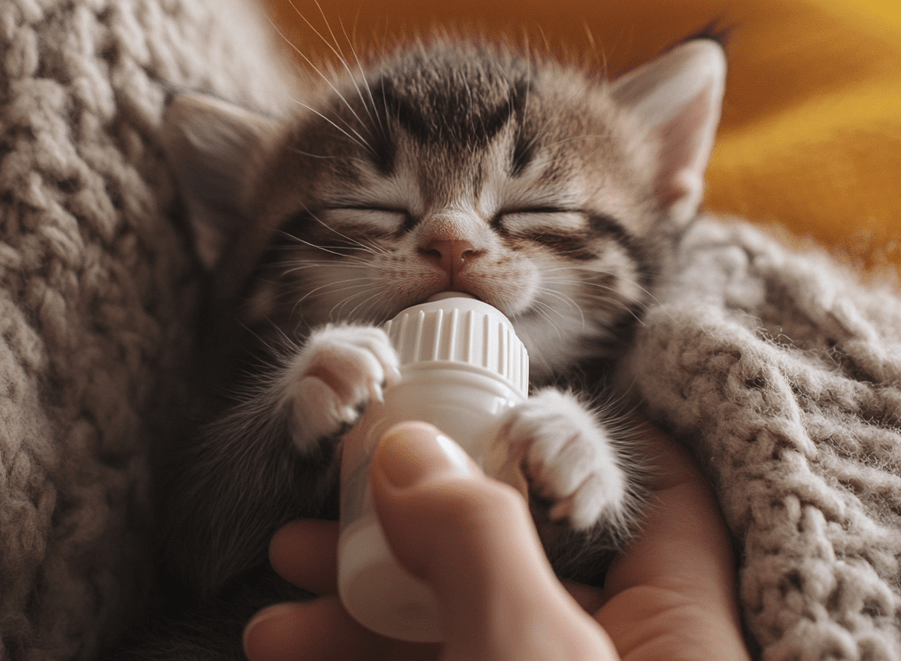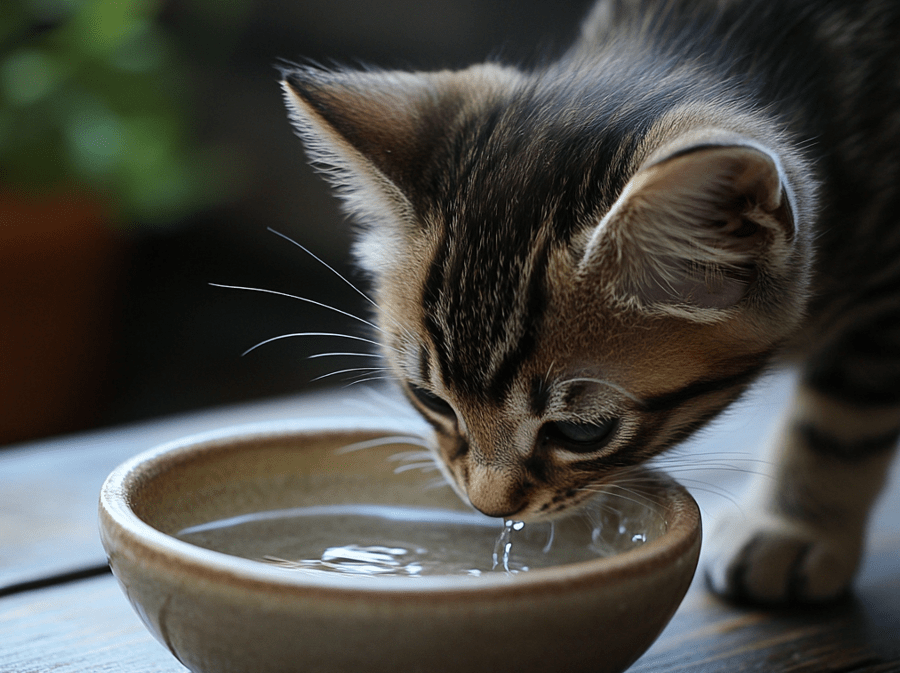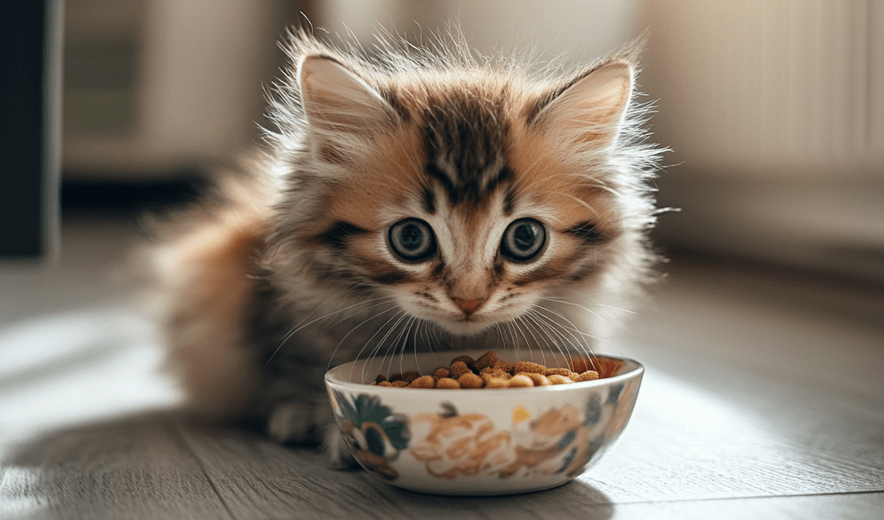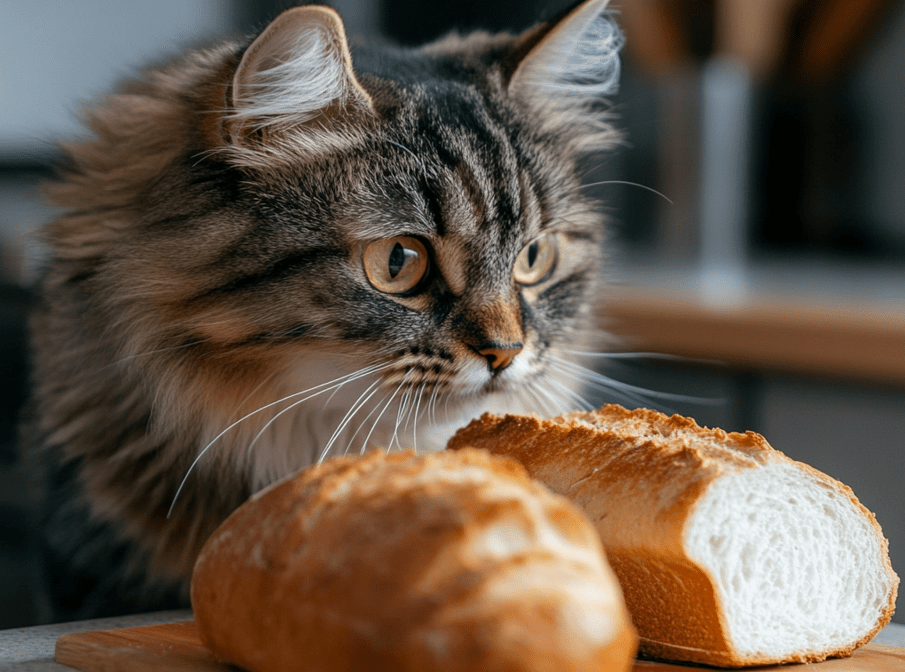
We have all seen the funny videos of cats running away with a loaf of bread under their arm (so to speak) and many owners may own a cat that steals bread! Is Bread Harmful to Cats? The answer to this question is not a simple yes or no.
To watch the summary of this article, just watch this video-
Is Bread Harmful to Cats?
Cooked, plain bread isn’t toxic to cats but it doesn’t do them any good either. Cats are obligate carnivores, which means the majority of their diet should contain meat. There is zero meat-based protein in bread, and for cats it’s just “empty calories.” Also, bread is high in carbohydrates which can be injurious to a cat’s health particularly when the said cat has diabetes where its diet must necessarily consist of restricted carbohydrates. Never touch the bread in these conditions.
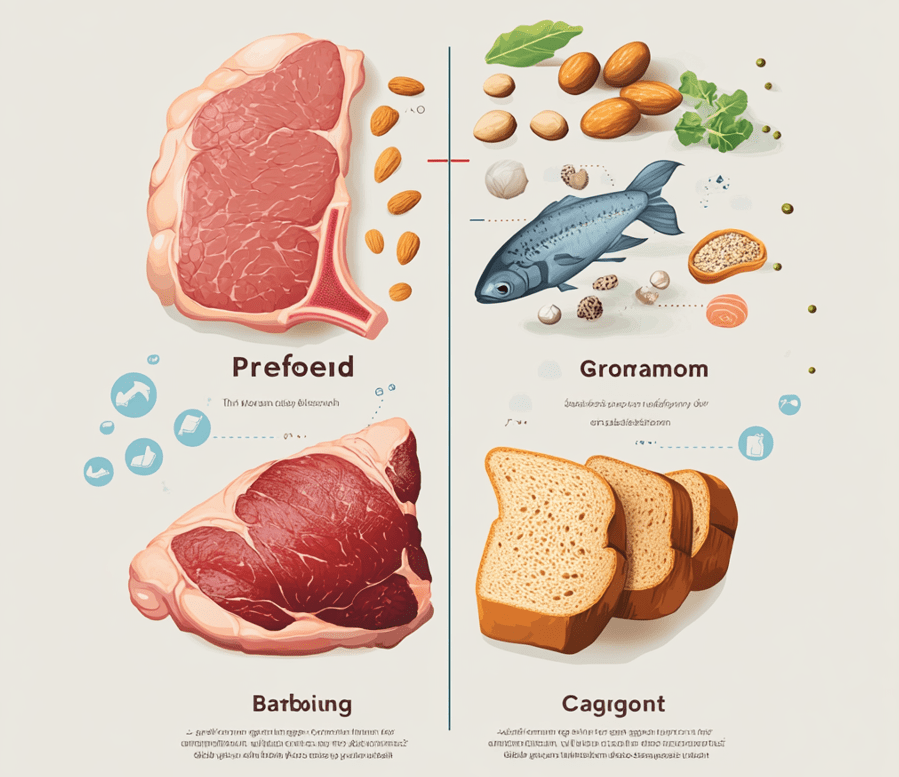
By and large, the plainer bread is less risky. There is no problem with that, but avoid breads containing added sugar or spices, as well as those having onion and garlic in it (in some cases even hazardous to cats).
Can Cats Eat Banana Bread?
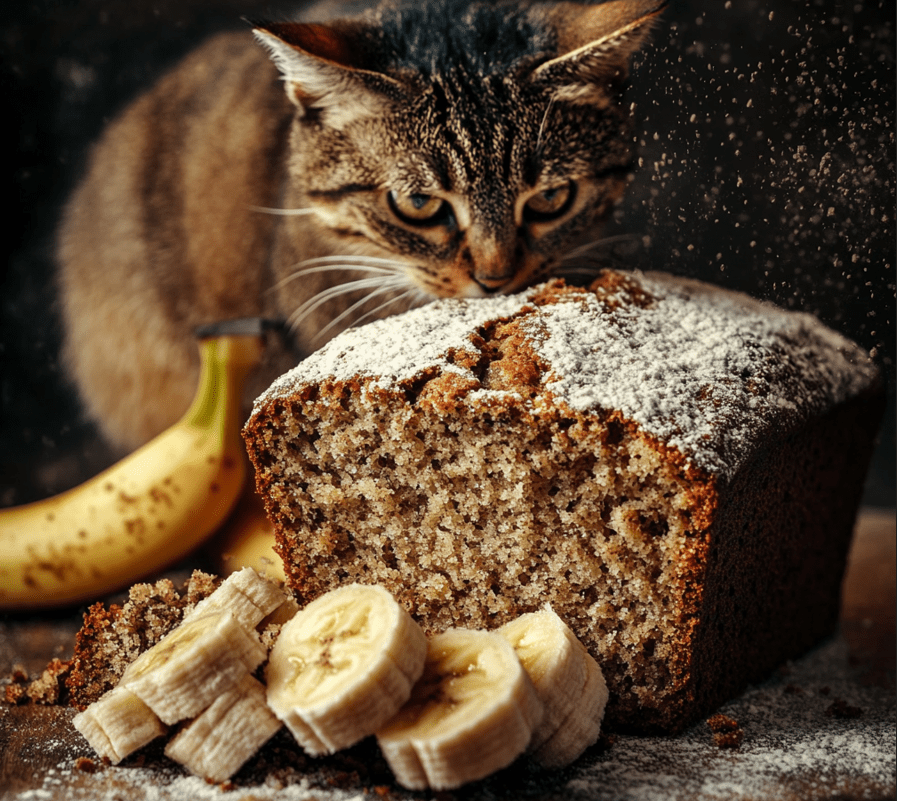
Not advised to share banana bread with your cat. It is usually mixed with sugar, as well as a number of spices that reduce its nutritional content and increase the possibility for toxicity. This risk is even higher when it comes to sugar-free banana breads as they may contain a toxic alternative to sweetener called xylitol. For bread containing xylitol, you can also call a vet immediately if your cat ingests it by accident.
What about Garlic Bread?
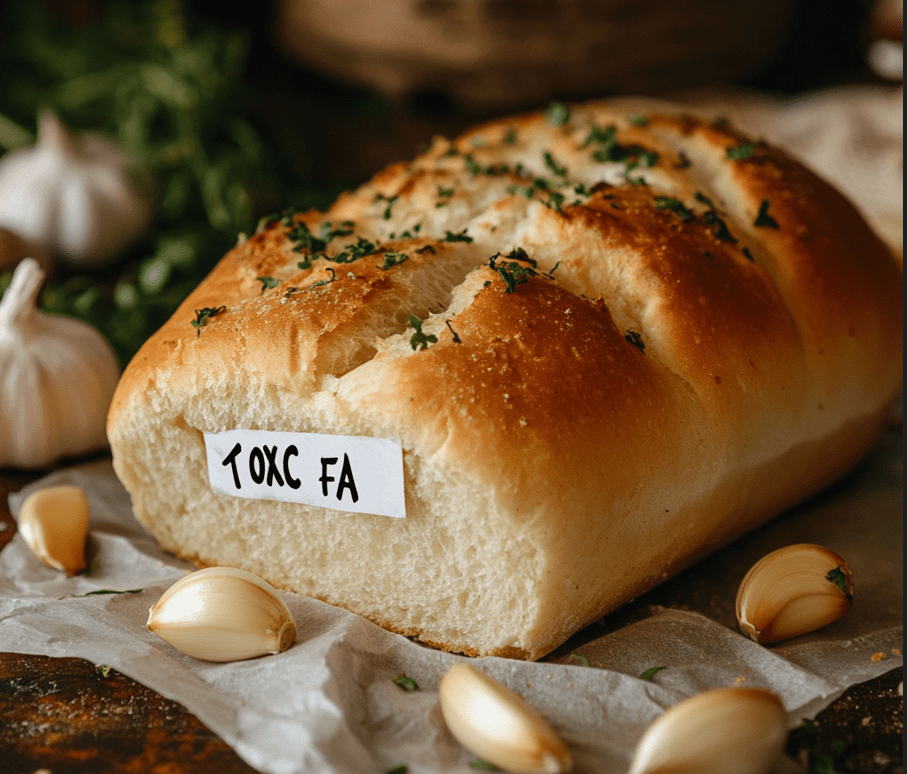
Cats should stay away from garlic bread. Garlic is a deadly poison to cats, even in smaller quantities, and garlic butter can quickly lead to the poisoning. In case your cat ingests any garlic bread it is absolutely necessary that you notify a veterinarian immediately.
In other words, non-toasted bread is not harmful in small amounts but has no advantages for the health of your cat. Flavored Breads: Banana bread or Garlic bread is especially risky for your cat and therefore this type of content should be kept away from the path.
Types of Bread that Cats Can and Cannot Eat
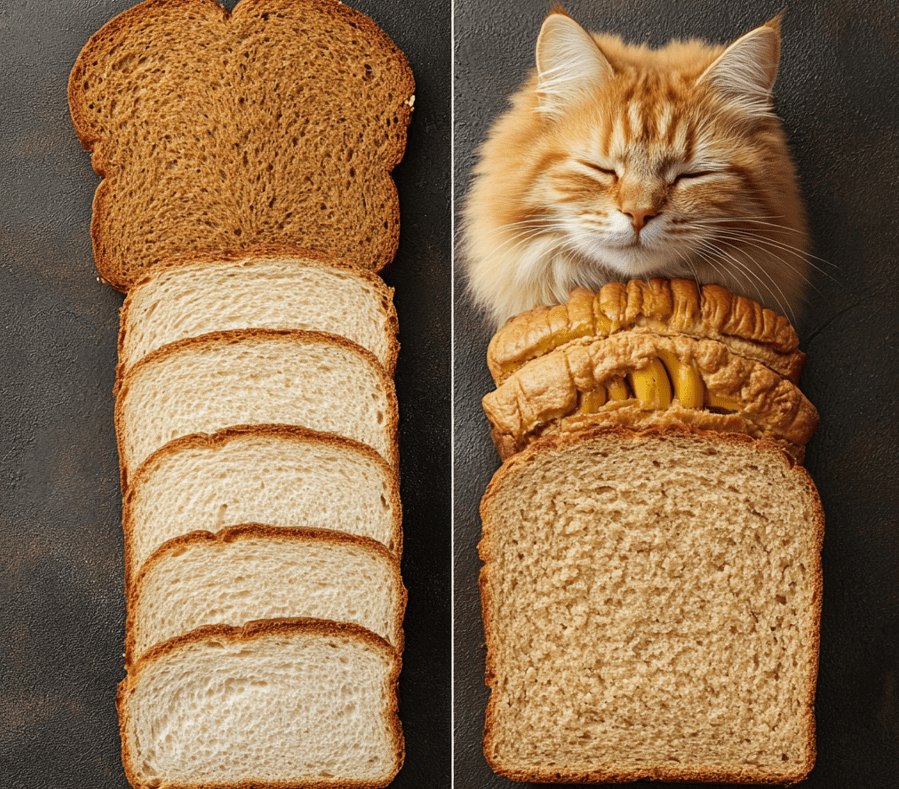
White Bread
It may be boring, but white bread is one of the better options when it comes to sharing food with cats. It is generally a harmful, high carbohydrate rich food despite being. This is so common that some cat owners give their cats a bit of small white bread to hide medications for feline friends.
Wheat Bread
Another suitable option that can be shared in moderation is wheat bread as it contains no harmful additives, unlike most other brands. Despite the fact that all breads are calorie-dense and low in nutrition, you can definitely offer small amounts as occasional treats.
Pumpkin Bread
While plain pumpkin is cat-safe, nothing about the high amounts of sugar and spices in this particular loaf means it should go near a kitty! Some ingredients in this type of bread can be toxic for your cat; so, better stay away from it.
Hawaiian Bread
Hawaiian bread is a traditional food of Hawaii that is sweet and sometimes has sugar or fruit added. The extra sugars do increase the change of gag issues, however so it is best to avoid giving this bread to your pet.
Corn Bread
Cornmeal is not unsafe for cats, so technically cornbread should also be fine. But being high in calories and carbs, this is something that you can offer once a while or not at all. A small piece likely will not hurt your cat, but should remain a rare treat.
Breads in general are not very nutritious because they have a high amount of carbs Bread should be given to cats as wise and few, health-related problems can prevent.

